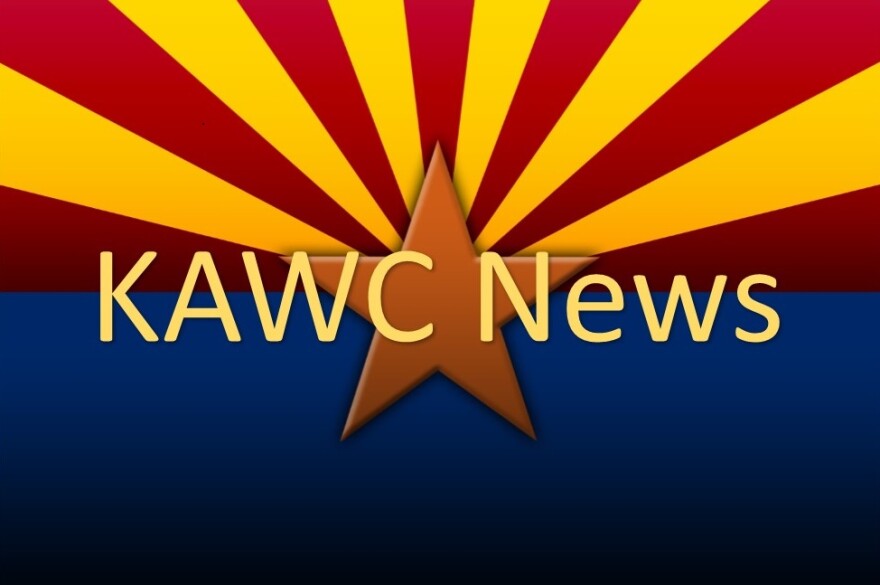By Howard Fischer
Capitol Media Services
PHOENIX -- With the declared emergency now a full year old, state lawmakers are moving to force Gov. Doug Ducey to finally use the existing Statewide Emergency Council that was specifically created to advise him and monitor his activities.
SB 1719 spells out that Ducey -- and any future chief executive -- must convene the council within 14 days of declaration. Then the governor has to convene the council at least once every 14 days thereafter during the emergency.
And if the governor does not, then the state of emergency is automatically terminated.
The measure, which already cleared the Senate on a unanimous vote, gained the approval of the House Committee on Government and Elections on Wednesday on a 9-4 margin. It now goes to the full House.
Existing law not only creates the 14-member council but requires it to monitor each emergency declared by the governor and the activities and response of the state's division of emergency management. And it is suppose to make recommendations to the governor or legislature about whether the "emergency conditions have stabilized and that the emergency is substantially contained.''
That hasn't happened because the council has not met.
Ducey's failure to act since he first declared the emergency on March 11, 2020, has not gone unnoticed.
"The governor has not convened the Emergency Council or sought recommendations from it regarding orders, rules, policies or procedures,'' noted Attorney General Mark Brnovich, who by statute is a member of the council. Nor, he said, has the governor asked for advice "regarding whether or when the declared state of emergency should be terminated.''
Senate Minority Leader Rebecca Rios, who has shepherded the measure through the process, called it "a simple, bipartisan bill.'' More to the point, the Phoenix Democrat pointed up the questions that have been raised about Ducey's handling of the emergency, questions she said the council could help to address.
"I think it's fair to say there has been contention on both sides of the aisle with regard to the current executive order,'' she said.
Democrats have chided the governor for being slow to take action they say is designed to protect public health. For example, he not only refused to require the use of masks but for months actually had forbade cities and counties from imposing their own mandates.
Republicans, for their part, have questioned whether some of Ducey's orders have improperly -- and illegally -- infringed on individual rights. That includes a now-expired stay-at-home order as well as restrictions that still exist on how businesses have to operate like distancing requirements.
"This would simply utilize the council that already exists and require that that council meet at least every two weeks,'' she said. And Rios emphasized that would have to be in public.
"I think it's important to provide some transparency so that the legislature, so that the public is are of the issues that are being discussed and determinations that are being made based on that information,'' she said.
Ducey spokesman C.J. Karamargin does not dispute that his boss has not convened the council to discuss the now year-old emergency declaration, though he said there was a June meeting to talk about COVID-19 and riots. But he said the governor does not see that as an issue.
"If there were business before the council that needed to be discussed, we would have a meeting,'' Karamargin said.
Anyway, he said, Ducey, who heads the council, is in "regular contact'' with at least some of the council members, specifically naming the state health director and the adjutant general, both of whom have played active roles in managing the state's response to the virus.
But unlike an actual meeting, the advice they have given him is not in public. And Karamargin declined to say whether the governor also has reached out to other council members, including Brnovich and Secretary of State Katie Hobbs.
While Rios got unanimous support from the Senate, she had less success on Wednesday as four Republicans on the Government and Elections Committeee opposed the measure.
Rep. Bret Roberts, R-Maricopa, said the focus should be on finding ways to give the legislature more power and input on what happens during an emergency rather than expanding the powers of the council. He prefers one measure which would immediately terminate the current emergency as well as a parallel plan which would require future governors to seek legislative input for future emergencies.
Similar concerns were expressed by Rep. Kevin Payne, R-Peoria.
"I would rather the entire legislature convene after 14 days, not just the council,'' he said.
If the measure clears the House, Ducey would still get the last word: He could simply veto the measure.
Karamargin said his boss does not comment on pending legislation.




